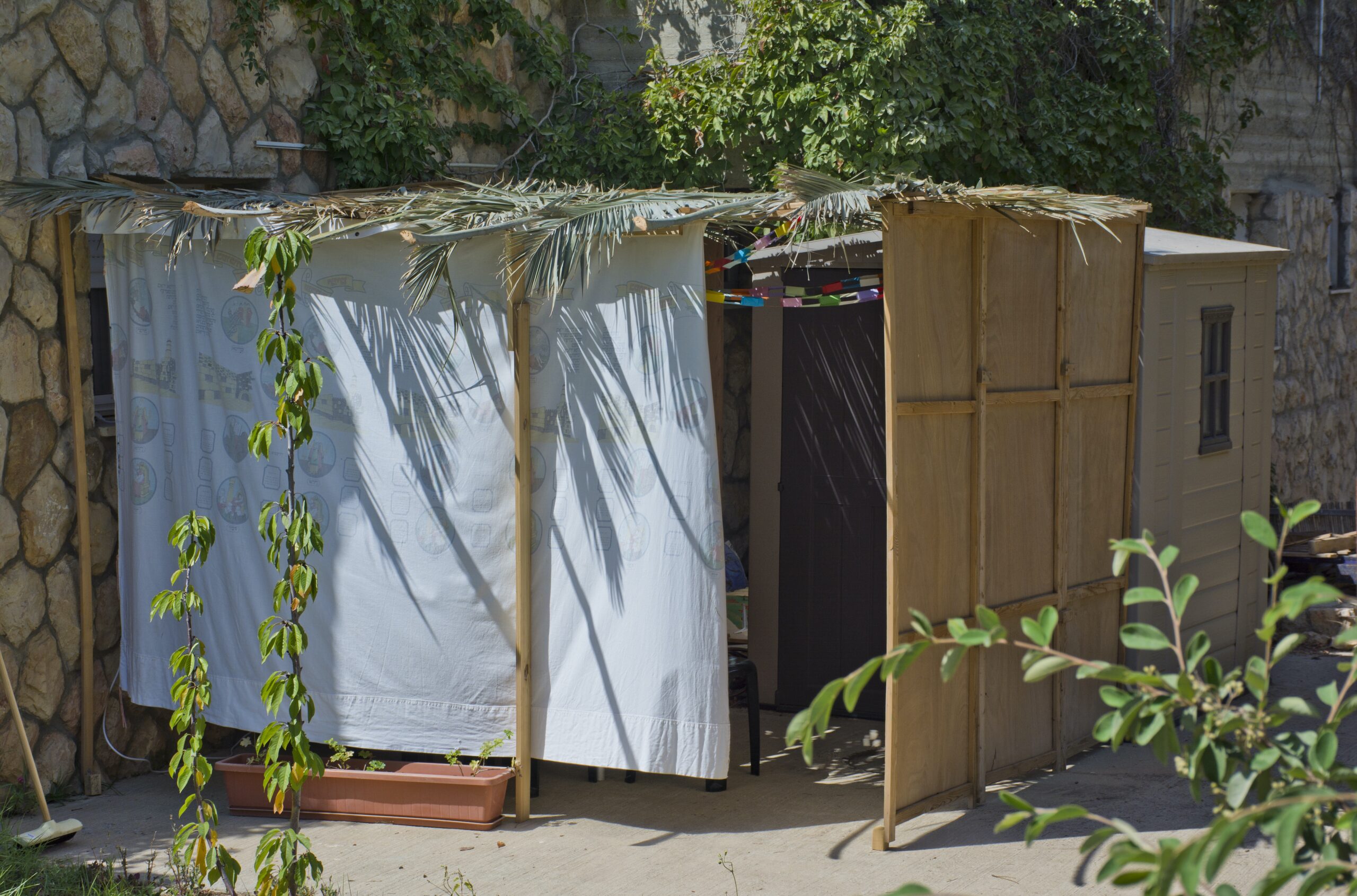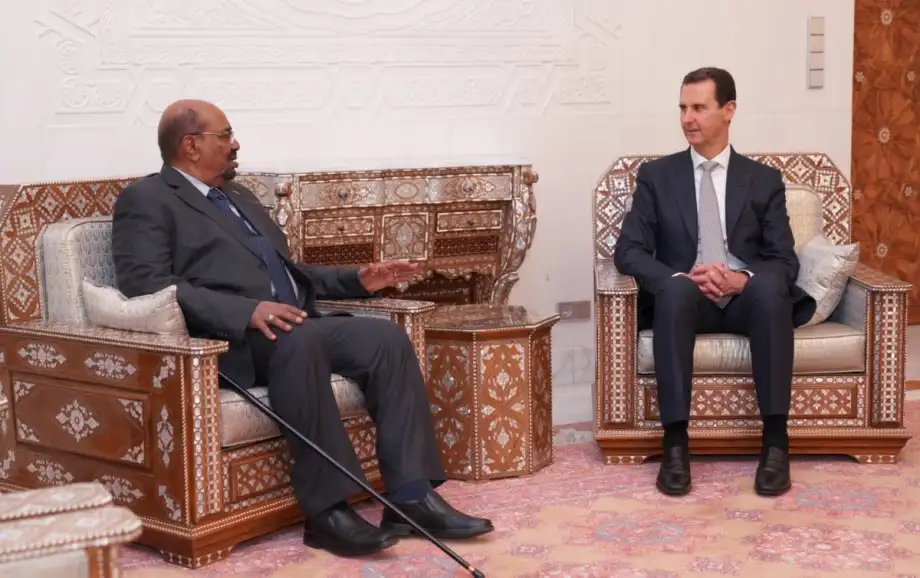Muslim anti-Semitism to the West via Media?
How are prominent Middle Eastern correspondents and journalist affected by their own backgrounds in Muslim countries, where anti-Semitism and prejudice against Jews is rampant?

Samar Hadrous (to the right) recently became a correspondent in the Middle East for Radio Sweden. Radio Sweden’s second Middle East correspondent Cecilia Uddén (left) was originally an editor a Swedish Communist newspaper and grew up in Egypt where she was married to an Arab for five years. Photo: Sveriges Radio
Samar Hadrous recently became a correspondent in the Middle East for Radio Sweden. She was previously employed by the Al-Jazeera TV channel which is owned by Qatar. Israel has repeatedly boycotted the channel charging it with bias in its coverage of the conflict against Hamas.
Al Jazeera promotes Hamas propaganda and has repeatedly broadcast statements by Hamas’ military and political leaders calling for rebellion and closely follows Hamas’s description of the conflict with Israel.
Radio Sweden’s second Middle East correspondent Cecilia Uddén was originally an editor at the Swedish Communist Party’s newspaper Gnistan. She grew up in Egypt where she was married to an Arab for five years and so speaks fluent Arabic today.
When the conflict between Israel and Hamas flared up in the spring of 2021, Cecilia Uddén participated in Radio Sweden’s ‘Morning Session’. There she falsely claimed that Hamas is not on the EU’s terror list. The Swedish Press & Broadcasting Authority condemned Radio Sweden for the feature, citing that it was in breach of the requirement of objectivity.
The Swedish evening newspaper, Aftonbladet’s editorial writer Zina Al-Dewany is a sharp critic of Israel who was previously editorial writer for the socialist newspaper Flamman, which in 1987 received a printing press from the Central Committee of the Communist Party of the Soviet Union. Her parents are from Iraq.
Both news and rockets misguided
Samir Abu Eid is the Middle East correspondent for Swedish Television, SVT. His father is a Palestinian who moved from Jordan to Sweden in 1967.
After the explosion at the Al Ahli hospital in Gaza last October, Samir Abu Reid stated that many Palestinian civilians had “been killed in an Israeli air attack on this hospital…” SVT’s only source was thus Hamas.
SVT began with a feature in the news program Report: “More than 500 people were killed when Israel attacked a hospital in Gaza, according to the Gazan Health Authority”.
It later emerged that the explosion was in fact the result of a failed rocket launched from within Gaza by Palestinian Islamic Jihad.
After the explosion at the Al Ahli hospital in Gaza last October when Hamas immediately claimed that some 500 people had been killed in the blast from an Israeli rocket, the entire Middle East was set on fire. Reactions in the Arab world and the media’s initial misreporting led a united world community, presidents and party leaders to demand restraint from Israel.
Former reporter at Aftonbladet, Kenan Habul, is a Bosnian Muslim and a known Israel critic on platform X. He was presented early in 2019 as a profile-signup by Sydsvenskan (“Southern Sweden newspaper”) in Malmö.
Magda Gad is the Middle East correspondent for the Swedish evening newspaper, Expressen. Her father is from Egypt. Magda Gad expresses one-sided criticism of Israel’s warfare and completely overlooks Hamas’ actions, on platform X. She has not written in Expressen about the conflict in Gaza but has had to settle for being interviewed in the communist newspaper Proletären. There she claimed that it’s easier to be a journalist in countries such as Iraq, Syria, Afghanistan and Somalia than in Israel, despite the fact that Israel is significantly better than these countries on Reporters Without Borders’ list of press freedom in the countries of the world.
Negative view of Jews
In Muslim countries, the view of Jews is largely negative. Almost everyone in Jordan (97 percent), the Palestinian territories (97 percent) and Egypt (95 percent) had a negative view, according to a 2010 survey by the American think-tank Pew Research Center (PEW).
In contrast, only 35 percent of Israeli Arabs—those who have personal contact with Jews—expressed a negative opinion toward them, while 56 percent expressed a positive opinion.
Hence, in Arab countries from which Jews were forced to flee when the state of Israel was established, the populations have negative perceptions of people they’ve never met, while the Israeli Arabs who’ve met Jews in reality have a more positive perception.
Prejudice and hatred of Jews has increased sharply in the Arab world since the beginning of the 20th century. During the 1930s and ’40s, several Jewish communities in the Arab world suffered from pogroms. The collapse of the Ottoman Empire, Nazi propaganda, close relations between Nazi Germany and the Arab world, and the emergence of the State of Israel have all led to a proliferation of anti-Jewish and anti-Zionist conspiracy theories.
The creation of the State of Israel and Israeli victories in the wars of 1956, 1967 and 1973 contributed to anti-Semitism in countries such as Egypt, Syria and Iraq. Soon the great majority of Jews had left Arab and Muslim countries and moved mainly to Israel, France and the United States.
Today, there are only a handful of Jews left in countries such as Egypt, Syria and Iraq.


